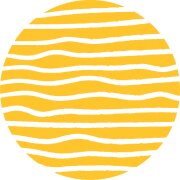Best Communications & Media Law Lawyers in New Zealand
Share your needs with us, get contacted by law firms.
Free. Takes 2 min.
Or refine your search by selecting a city:
List of the best lawyers in New Zealand
About Communications & Media Law in New Zealand
Communications & Media Law in New Zealand regulates the legal issues surrounding communication and media activities, such as broadcasting, publishing, advertising, and telecommunications. This area of law covers a wide range of issues, including defamation, privacy, intellectual property, freedom of expression, and digital media. It is essential for individuals and businesses involved in the media industry to understand their rights and obligations under New Zealand’s legal framework.
Why You May Need a Lawyer
You may need a lawyer specializing in Communications & Media Law in New Zealand if you are dealing with issues such as defamation claims, copyright infringement allegations, privacy breaches, or contractual disputes related to media content. A lawyer can help you navigate the complex legal requirements and protect your rights in these situations.
Local Laws Overview
Key aspects of local laws relevant to Communications & Media Law in New Zealand include the Harmful Digital Communications Act, the Privacy Act, the Copyright Act, and the Broadcasting Standards Authority codes. These laws provide guidelines for media activities, protect individuals' privacy and intellectual property rights, and set standards for broadcasting content in New Zealand.
Frequently Asked Questions
1. What is defamation, and how is it regulated in New Zealand?
Defamation refers to the act of harming someone's reputation through false statements. In New Zealand, defamation is regulated by common law and the Defamation Act 1992, which provide legal remedies for individuals who have been defamed.
2. Can I use someone else's copyrighted work without permission?
Using someone else's copyrighted work without permission may constitute copyright infringement. It is essential to obtain the copyright owner's consent or ensure your use falls under a permissible exception, such as fair dealing, to avoid legal consequences.
3. What rights do individuals have under the Privacy Act in New Zealand?
The Privacy Act in New Zealand protects individuals' privacy rights by regulating how personal information is collected, used, and disclosed. Individuals have the right to access and correct their personal information held by organizations and complain about privacy breaches.
4. How does the Harmful Digital Communications Act apply to online activities in New Zealand?
The Harmful Digital Communications Act aims to address harmful online communications, such as cyberbullying and harassment. It provides legal remedies for individuals who have experienced online harm and sets out processes for dealing with harmful digital communications.
5. What are the key principles of the Broadcasting Standards Authority codes in New Zealand?
The Broadcasting Standards Authority codes set out principles for broadcasting content, including accuracy, fairness, and balance. Broadcasters must adhere to these codes to ensure their content meets the required standards of quality and integrity.
6. How can I protect my intellectual property rights in the media industry?
You can protect your intellectual property rights in the media industry by using trademarks, copyrights, and patents to safeguard your creative works and inventions. It is essential to understand the different types of intellectual property rights and seek legal advice to enforce and protect them.
7. What is the Freedom of Expression in New Zealand, and how is it balanced with other legal rights?
The Freedom of Expression is a fundamental right protected under the New Zealand Bill of Rights Act 1990. While individuals have the right to express their opinions and ideas, this right is subject to limitations to prevent harm to others, such as defamation, hate speech, or incitement to violence.
8. Can organizations be held liable for the content they publish or broadcast in New Zealand?
Organizations can be held liable for the content they publish or broadcast if it breaches legal requirements, such as defamation, copyright infringement, or privacy violations. It is essential for organizations to have proper procedures in place to ensure compliance with relevant laws and standards.
9. How can I file a complaint about a media organization's conduct in New Zealand?
You can file a complaint about a media organization's conduct with the relevant regulatory body, such as the Broadcasting Standards Authority or the Press Council. These bodies have processes for investigating complaints and resolving disputes related to media content.
10. What should I do if I receive a legal notice related to Communications & Media Law in New Zealand?
If you receive a legal notice related to Communications & Media Law in New Zealand, it is essential to seek legal advice promptly. A lawyer specializing in this area can help you understand your rights, assess the situation, and provide guidance on how to respond effectively to the notice.
Additional Resources
For more information on Communications & Media Law in New Zealand, you can visit the Ministry of Justice website, the Broadcasting Standards Authority website, or seek advice from legal organizations such as the New Zealand Law Society.
Next Steps
If you require legal assistance in Communications & Media Law in New Zealand, it is advisable to consult with a qualified lawyer experienced in this field. They can provide tailored advice to address your specific issues and help you navigate the legal complexities of the media industry in New Zealand.
Lawzana helps you find the best lawyers and law firms in New Zealand through a curated and pre-screened list of qualified legal professionals. Our platform offers rankings and detailed profiles of attorneys and law firms, allowing you to compare based on practice areas, including Communications & Media Law, experience, and client feedback.
Each profile includes a description of the firm's areas of practice, client reviews, team members and partners, year of establishment, spoken languages, office locations, contact information, social media presence, and any published articles or resources. Most firms on our platform speak English and are experienced in both local and international legal matters.
Get a quote from top-rated law firms in New Zealand — quickly, securely, and without unnecessary hassle.
Disclaimer:
The information provided on this page is for general informational purposes only and does not constitute legal advice. While we strive to ensure the accuracy and relevance of the content, legal information may change over time, and interpretations of the law can vary. You should always consult with a qualified legal professional for advice specific to your situation.
We disclaim all liability for actions taken or not taken based on the content of this page. If you believe any information is incorrect or outdated, please contact us, and we will review and update it where appropriate.
Browse communications & media law law firms by city in New Zealand
Refine your search by selecting a city.

















